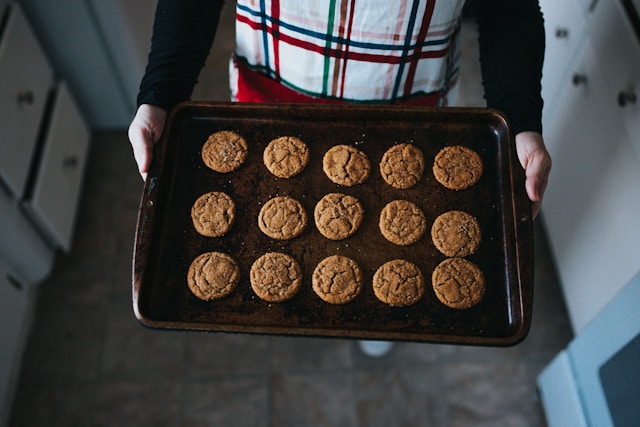Baking from home is more than a creative outlet. For many, it’s a way to earn extra income and share something they love. Cupcakes, biscuits, and sourdough loaves can all become the foundation of a small but profitable business.
But turning a passion into profit requires more than just good recipes. Here are the must-haves to get your baking side hustle off the ground.
Know Your Taxes
Even if you only sell a few dozen cupcakes a week, you’ll still need to pay attention to the financial side. Every sale is income, and that means it must be reported correctly. Choosing the right structure for your venture (whether you remain a sole trader or register a small business) will affect what taxes you pay and how you pay them.
Good record-keeping is essential. Tracking expenses such as ingredients, packaging, and equipment can reduce your tax bill and give you a clearer picture of profits. Sorting out these side hustle formalities early on helps you avoid stressful surprises later.
Even the smallest business must be compliant, and being organised means your venture can grow with confidence.
Food Hygiene and Equipment
When selling food to the public, hygiene is non-negotiable. You may need to register your kitchen with the local authorities before you start trading. Following food hygiene regulations not only keeps you legal but also reassures customers that their health is taken seriously.
The right equipment makes this much easier. A sturdy professional workspace is essential. Stainless steel tables are popular because they are durable, easy to clean, and designed specifically for the kitchen environment.
Investing in tools that support safe preparation, such as airtight storage containers and a separate oven from family one, means your products can meet food safety requirements
Working with Suppliers
A big question for new bakers is whether to work with wholesale suppliers or just shop at the supermarket. Professional suppliers often offer better prices, access to high-quality flours, and bulk deals on essentials like butter and sugar. But they may also require larger minimum orders, which can be impractical if you’re baking small batches.
One solution is to work with local suppliers or join a co-op that pools resources. Another is to negotiate smaller quantities with wholesalers who support start-ups.
The right choice depends on your scale, but it is worth exploring supplier relationships to see if they can provide you with an edge through ingredient access.
Good Delivery
Deciding how your goods get to your customers is just as important as baking them. If you plan to ship, you’ll need couriers who handle food with care and deliver quickly enough to preserve freshness. Local delivery services are often a good fit for home bakers serving their local area.
Alternatively, you could have collection points. Local cafes, community markets, or pop-up stalls often welcome small food businesses.
Limited home pick-up can work too, but may not be practical in the long run.
A baking side hustle is a mix of creativity and practical organisation. With these professional touches in place, you can reassure customers while carefully planning your baked goods. Ultimately, while a baking side hustle may not be a large-scale bakery, you need to take it just as seriously.


